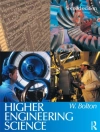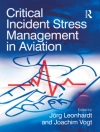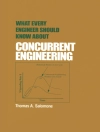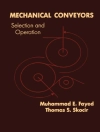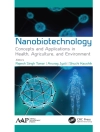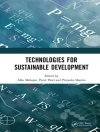Click chemistry describes organic reactions which are highly efficient, regioselective and allow for mild reaction conditions. The archetypal click reaction of Cu(I)-catalyzed azide-alkyne cycloaddition (Cu AAC) is used in many diverse areas and has been extensively developed for polymer synthesis, leading to the term of click polymerization. This technique enables the preparation of functional polymers with linear and topological structures that have the potential to be used in optoelectronics and biological fields.
Edited by world renowned experts, Click Polymerization is the first book to comprehensively summarize this approach to polymer synthesis consolidating all the different reaction types in one resource. From the basic knowledge through to the latest developments in synthesis, chapters include transition-metal catalysed and metal-free azide-alkyne click polymerizations as well as thiol-ene, thiol-yne and thiol-epoxy click polymerizations.
The book provides an authoritative guide to click polymerization techniques for graduate students and researchers interested in polymer chemistry and materials science.
Tabla de materias
Overview of Click Polymerization; Transition Metal-catalyzed Click Polymerization; Metal-free Azide–Alkyne Click Polymerization; Catalyst-free Click Polymerization Using Nitrile N-Oxides Applicable to Various Dipolarophiles; Thiol-yne Click Polymerization; Thiol-epoxy and Amine-epoxy ‘Click’ Polymerizations; Multicomponent Polymerization Mediated by Click Chemistry
Sobre el autor
Ben Zhong Tang is Stephen K. C. Cheong Professor of Science, Chair Professor of Chemistry, and Chair Professor of Chemical and Biological Engineering at The Hong Kong University of Science and Technology. His research interests include macromolecular chemistry, materials science and biomedical theranostics. Tang received his B.S. and Ph.D. degrees from South China University of Technology and Kyoto University, respectively. He conducted postdoctoral research at University of Toronto. He joined HKUST as an assistant professor in 1994 and was promoted to chair professor in 2008. He was elected to the Chinese Academy of Sciences in 2009 and as Fellow of Royal Society of Chemistry (RSC) in 2013. Tang has published >1, 200 papers. His publications have been cited >58, 000 times with an h-index of 118. He has been listed by Thomson Reuters as a Highly Cited Researcher in both areas of Chemistry and Materials Science. He received First Class National Natural Science Award from the Chinese Government (2017), Scientific and Technological Progress Award from the Ho Leung Ho Lee Foundation (2017) and Senior Research Fellowship from the Croucher Foundation (2007). He is now serving as Editor-in-Chief of Materials Chemistry Frontiers (Co-owned by Chinese Chemical Society and RSC) and Polymer Chemistry Series (RSC).


